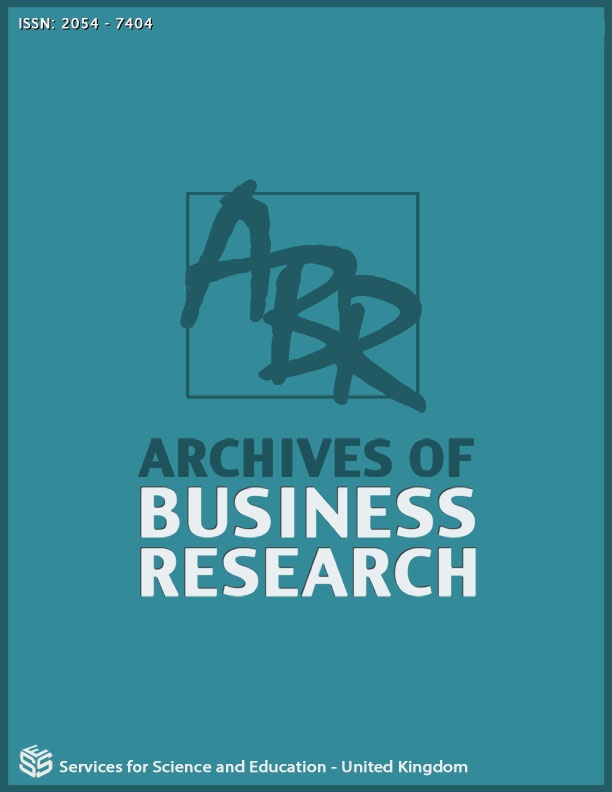Online versus online plus face-to-face class: The case of International Economics and International Finance
DOI:
https://doi.org/10.14738/abr.108.12878Keywords:
COVID-19, difference-in-difference, face-to-face, flipped classroom, higher education, onlineAbstract
COVID-19 has not ended yet and most colleges and universities all over the world could not yet resume face-to-face classes, instead having had to conducted online classes. This situation was common in 2020, however, the situation has gradually changed since 2021. From the changing of delta strains to omicron strains of COVID-19, there were some periods that the number of critically ill patients had decreased rapidly. Most colleges and universities in Japan have transitioned back to face-to-face classes during the semester from online classes. This study examines how the outcome of online class versus online plus face-to-face class changed empirically. The empirical results using difference-in-difference show that introducing face-to-face classes increased the outcome of learners’ performances. While online classes do have some merits, reintroducing face-to-face classes increases learner outcome to a greater extent. Flipped classrooms could give us some good roads to promote the class outcomes.
References
. Kurihara, Y., How should colleges and universities Institutions provide lectures under the COVID-19 crisis. Education, Society and Human Studies, 2020. 1(2): p.144-153. https://doi.org/10.22158/eshs.v1n2p144
. Milman, N. B., The flipped classroom strategy: What is it and how can it best be used? Distant Learning, 2012. 9(3): p.85-87.
. Louhab, F. E., et al., Considering mobile device constraints and context – awareness in adaptive mobile learning for flipped classroom. Education and Information Technology, 2018. 23(6): p.1-26.
http://dx.doi.org/10.1007/s10639-018-9733-3
. Adeyeye, B., et al., Online learning platforms and covenant university learners’ academic performance in practical related courses during COVID-19 pandemic. Sustainability, 2022. 14(2): p.1-16.
https://doi.org/10.3390/su14020878
. Tsang, J. T. Y., et al., Higher education during the pandemic: the predictive factors of learning effectiveness in COVID-19 Online learning. Education Sciences, 2021. 11(8): p.1-15.
https://doi.org/10.1080/09639284.2019.1609536
. Rosalia, D.-C. and F.-L. Noelia, Antecedents of academic performance in management studies in a flipped learning setting. Journal of education for Business, 2021. 10: p.1-10.
https://doi.org/10.1080/08832323.2021.1896462
. Bovermann, K., et al., Online learning readiness and attitudes towards gaming in gamified online learning – a mixed methods case study. International Journal of Educational technology in Colleges and Universities, 2018. 15: p.1-17.
https://doi.org/10.1186/s41239-018-0107-0
. Swart, W. W. and K. R. MacLeod, Flipping online analytics classes: achieving parity with their face-to-face counterparts. Journal of Innovative Education, 2020. 18(1): p.119-137.
. Baltà-Salvador, R., et al., Academi and emotional effects of online learning during the COVID-19 pandemic on engineering learners. Education and Information Technologies, 2021. 26(6): p.7407-7434.
https://doi.org/10.1007/s10639-021-10593-1
. Cranfield, D. J., et al., Higher education students' perceptions of online learning during COVID-19: A comparative study. Education Sciences, 2021. 11(8): p.1-17.
https://doi.org/10.3390/educsci11080403
. Elshami, W., et al., Satisfaction with online learning in the new normal: Perspective of learners and faculty at medical and health sciences colleges. Medical Education Online, 2021. 26(1).
https://doi.org/10.1080/10872981.2021.1920090
. Zaenol, F., et al., Student’s learning motivation and interest: the effectiveness of online learning during COVID-19 pandemic. Journal of Physics: Conference Series. 2021. 1899(1).
https://doi.org/10.1088/1742-6596/1899/012178
. Barrot, J. S., et al., Learners’ online learning challenges during the pandemic and how they cope with them: The case of the Philippines. Education and Information Technology, 2021. 26(6): p.7321-7338.
https://doi.org/10.1007/s10639-021-10589-x
. Williams, B., et al., Flipped vs traditional teaching perspective in a first year accounting unit: an action research study. Accounting Education, 2019. 28(4): p.333-352.
https://doi.org/10.1080/09639284.2019.1609536
. Kennedy, M., et al., Impact of COVID-19 on academic activities of final year nursing learners: a Zambian reflection. International Journal of Basic & Clinical Pharmacology, 2021. 10(7): p.806-812.
https//doi.org/10.18203/2319-2003.ijbcp20212377
.Balaban, R. A., et al., A quantitative evaluation of the flipped classroom in a large lecture principles of economics course. Journal of Economic Education, 2016. 47(4): p. 269-287.
. Becker, R. and A. Birdi, Flipping the classroom: old ideas, new technologies. International Review of Economics Education, 2018. 29: p.1-5.
https://doi.org/10.1007/s10639-018-9728-0
. Caviglia-Harris, J., Flipping the undergraduate economics classroom: Using online videos to enhance teaching and learning. Southern Economic Journal, 2016. 83(1): p. 321-331.
https://doi.org/10.3390/educsci11080403
. Chi, Y.-L., et al., Learning adaptivity in support of flipped learning: an ontological problem – solving approach. Exper systems, 2018. 35(3): p.1-14.
https://doi.org/10.1111/exsy.12246
. Kurihara, Y., Is Flipped Classroom Effective in Colleges and universities for the Case of Economics. Journal of Business Economics and Information Technology, 2018. 5(5): p.1-7.
. Wozny, N., et al., Evaluating the flipped classroom: a randomized controlled trial. Journal of Economic Education, 2018. 49(2): p.115-129.
. Hass, A., et al., “Let’s be independent together”: enabling student autonomy with team based learning activities in a flipped class. Marketing Education Review, 2020. 31(2): p.143-153-7.
https://doi.org/10.1080/10528008.2020.1853572
. Istenic, A., Online learning under COVID-19: re-examining the prominence of video-based and test-based feedback. Educational Technology, Research and Development, 2021. 69(1): p.117-121.
https://doi.org/10.1007/s11423-021-09955-w
. Krishnan, S. D. and N. C. Hassan, Online peer learning amid Covid-19 pandemic in Malaysian Higher Learning Institution. Turkish Journal of Computer and Mathematics Education, 2021. 12(14): p.1010-1019.
Downloads
Published
How to Cite
Issue
Section
License
Copyright (c) 2022 Yutaka Kurihara

This work is licensed under a Creative Commons Attribution 4.0 International License.






